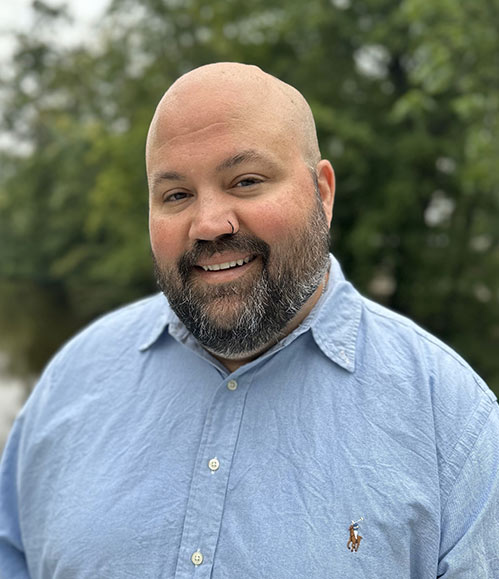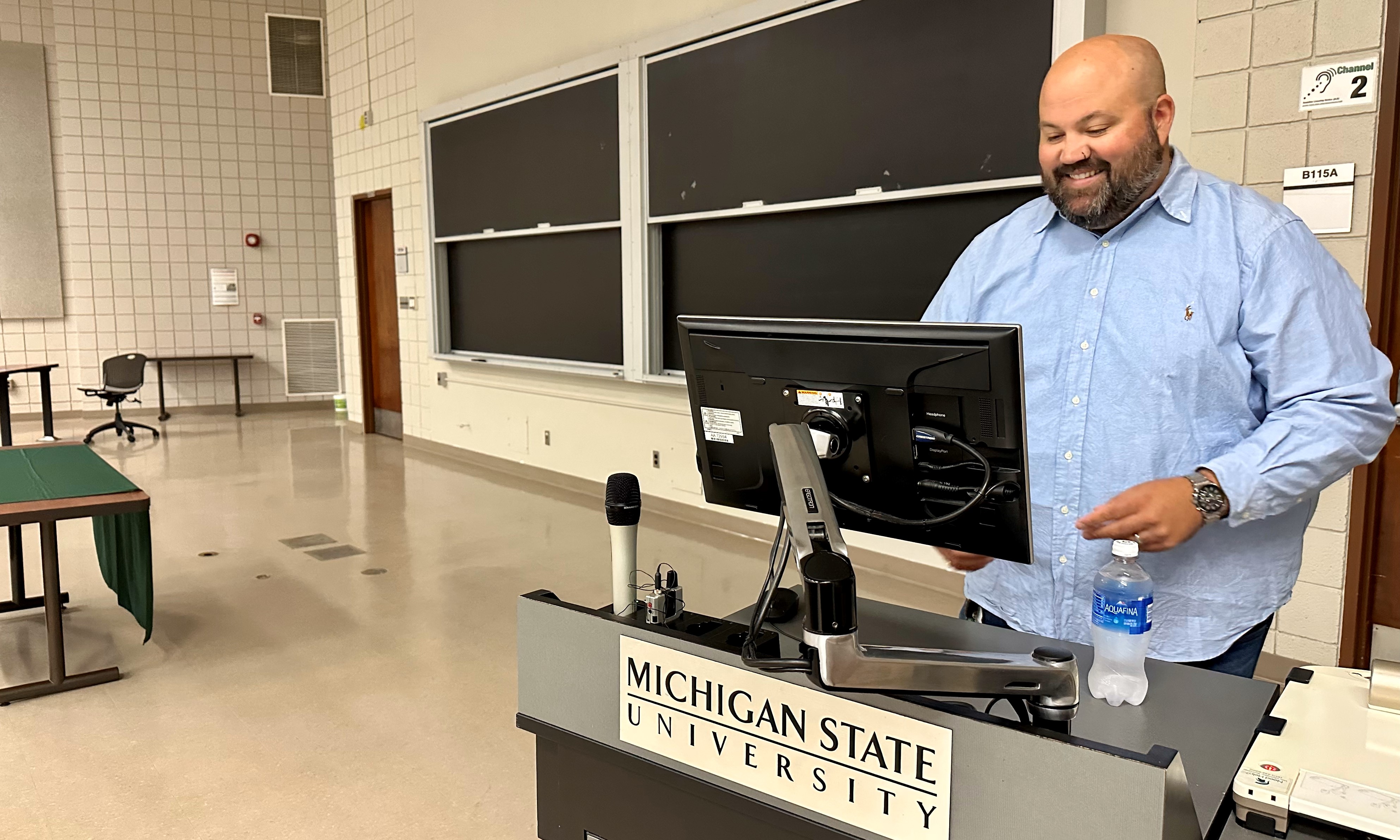Beyond the Lecture Hall: Dr. Weaver's Impactful Teaching
August 30, 2023 - Shelly DeJong
Drink lots of water.
If you have taken a class with Dr. Jonathan Weaver, there is a good chance you’ve received this advice. Weaver, an associate professor of psychology, has made this his mantra over his years of teaching at Michigan State.
“At the end of the week, I always tell my students to be safe, come back, and drink lots of water. Water is good for you, drink it,” Weaver said. “I may be teaching in a large lecture hall, but I say it to connect with them. I want to remind my students to always take care of themselves.”
Dr. Weaver teaches Psychology 101 and ISS 305: Evaluating Evidence, among others. Before the pandemic, it wasn’t uncommon for Weaver to walk into Wells Hall on the first day of class and have 600 students in Psychology 101. Weaver has learned over the years how best to engage and teach his students in these large classes.
When Dr. Weaver was an undergraduate student, he had a professor, Dr. Palmer, who inspired and helped Weaver find his path forward as a Social Psychologist. Weaver remembers Dr. Palmer sharing about his experiences as a clinician, giving examples that brought the material to life, but also being kind and compassionate. As an instructor himself, Weaver works to create that with his own students.
 In 2022, Dr. Weaver won the Spirit of Ability Award given by the Resource Center for Persons with Disabilities. This award recognizes leaders in the MSU community who help build an environment of opportunity and inclusion for all students. This student-nominated award recognized Dr. Weaver’s concern for his students’ learning and overall well-being.
In 2022, Dr. Weaver won the Spirit of Ability Award given by the Resource Center for Persons with Disabilities. This award recognizes leaders in the MSU community who help build an environment of opportunity and inclusion for all students. This student-nominated award recognized Dr. Weaver’s concern for his students’ learning and overall well-being.
“The Spirit of Ability Award was one of the highest honors for me,” said Weaver. “I put a lot into making sure that my material is accessible. I can’t hark it enough to people—accessibility of your materials makes learning better.”
One of Dr. Weaver’s goals as a professor is for his students to be able to bridge the gap between what they are learning in class and applying it to the outside world. He wants them to know they have the skills to apply a concept but also to know when it doesn’t apply to a situation.
“Can they take this concept and not only apply it but also know when it doesn’t apply to a situation?” said Dr. Weaver. “I want them to know that they have those skills with them, too.”
A Different Path
Dr. Weaver, originally from a small town in Wyoming, went to undergraduate school at Arizona State University. Weaver was about to take the MCAT as a pre-med student when he randomly took a psychology course as an elective. On the first day of class, he was recruited into a research lab and worked closely with three top social psychologists there.
“I fell in love with it. I realized that I wasn’t as interested in the molecular issues of what is going on with a person. Instead, I’m much more interested in the idea of how other people are affected by others and how that impacts their behaviors and thoughts,” said Weaver. “I realized that I had just been memorizing before because that is what I was told to do. But psychology allowed me to be curious and develop an intellectual drive.”
With his decision to switch to Social-Psychology, Weaver scrambled to apply to graduate school. He was accepted at a school, but after consideration, Weaver decided to decline as it wasn’t a good fit. He waited another year and worked to be better prepared with stronger submission materials and a better GRE score. He saw a lot of offers come in after that year, and he decided to go to the University of South Florida. He tells his students this story as a reminder to bet on themselves and to believe in their futures.
“I get a lot of gratitude and pleasure out of helping students achieve what they want to achieve and to get where they want to go,” said Weaver. “I try not to go sugarcoat things for them because I want them to be prepared for what a job is like or what that first semester of graduate school can feel like.”
He works to give his students the tools they need to propel them to success however they define it. Part of his advice includes using the resources available at Michigan State.
“Use the resources here, believe in yourself, and leave knowing how to think and how to apply what you've learned," said Weaver.


